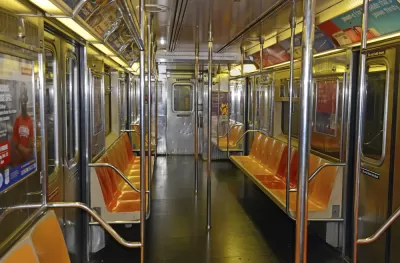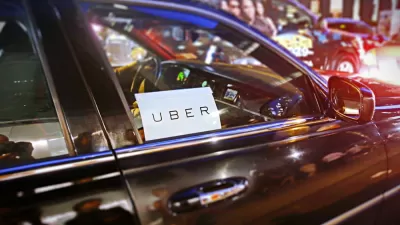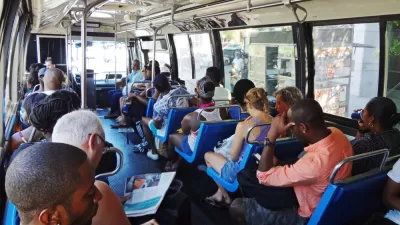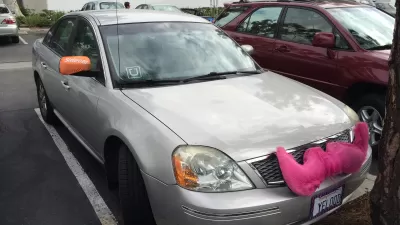Subsidizing rides through the companies has turned out to be cheaper than running bus routes in some places.

In a number of cities around the United States, transportation agencies are partnering with Uber and Lyft to provide subsidized rides, sometimes through federal grants. In some cases—especially in suburban areas—these arrangements are meant to allow cities to cut low-performing bus and shuttle lines.
Uber has made several such deals in Florida; Lyft begins its first, in Colorado, this month.
In Skift, Joshua Brustein of Bloomberg calls the trend an "oasis of rapprochement" between ride-sharing companies and local governments, which have repeatedly tangled over regulations, data-sharing, and competition.
But, as contracted drivers "effectively become part of the public transportation system," many of the same sources of conflict will remain at play:
Issues of control are going to test these friendships … Local governments are eager for data about ridership that they can use to reconfigure services, and Uber and Lyft tend to see information about demand as trade secrets. If ride hailing does drive down car ownership, as both Uber and Lyft expect it will, that could increase demand for subsidized rides, leaving governments holding the tab for new forms of semi-public transit.
The article also compares these partnerships to those made with Bridj, a startup that runs private buses.
In some cities, the deals are envisioned as a first-mile/last-mile solution—applying only to rides to and from a regional rail stop, for example. But, if they catch on, more questions on equity and reliability will follow:
What happens to people without smartphones? How do Uber and Lyft serve disabled riders? What happens if the cities come to rely on the apps, only to have the private companies decide the partnerships are no longer a sensible business venture for them? And do public governments want to encourage the replacement of public sector jobs with the contract work that defines the sharing economy?
FULL STORY: Uber and Lyft Work With Cities to Replace Public Buses

Alabama: Trump Terminates Settlements for Black Communities Harmed By Raw Sewage
Trump deemed the landmark civil rights agreement “illegal DEI and environmental justice policy.”

Study: Maui’s Plan to Convert Vacation Rentals to Long-Term Housing Could Cause Nearly $1 Billion Economic Loss
The plan would reduce visitor accommodation by 25% resulting in 1,900 jobs lost.

Planetizen Federal Action Tracker
A weekly monitor of how Trump’s orders and actions are impacting planners and planning in America.

Federal Homelessness Agency Places Entire Staff on Leave
The U.S. Interagency Council on Homelessness is the only federal agency dedicated to preventing and ending homelessness.

Restoring Northern India’s Himalayan ‘Water Temples’
Thousands of centuries-old buildings protect the region’s natural springs and serve as community wells and gathering places.

Milwaukee to Double Bike Share Stations
Bublr Bikes, one of the nation’s most successful, will add 500 new e-bikes to its system.
Urban Design for Planners 1: Software Tools
This six-course series explores essential urban design concepts using open source software and equips planners with the tools they need to participate fully in the urban design process.
Planning for Universal Design
Learn the tools for implementing Universal Design in planning regulations.
Caltrans
Smith Gee Studio
Institute for Housing and Urban Development Studies (IHS)
City of Grandview
Harvard GSD Executive Education
Toledo-Lucas County Plan Commissions
Salt Lake City
NYU Wagner Graduate School of Public Service





























